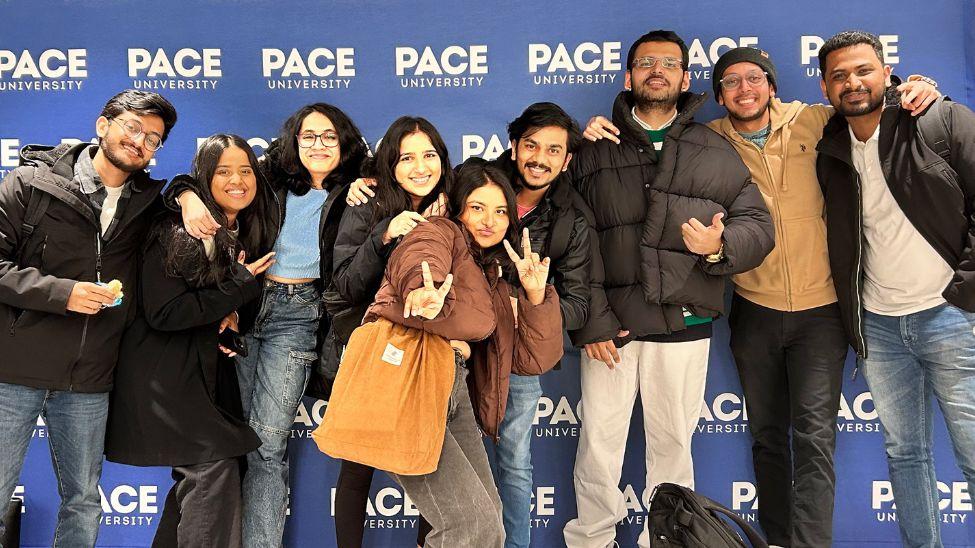
From engineering to empathy: a journey into UX research
Nishant Doshi moved from India to New York to make the most of the opportunities Pace has to offer—and he’s succeeding.
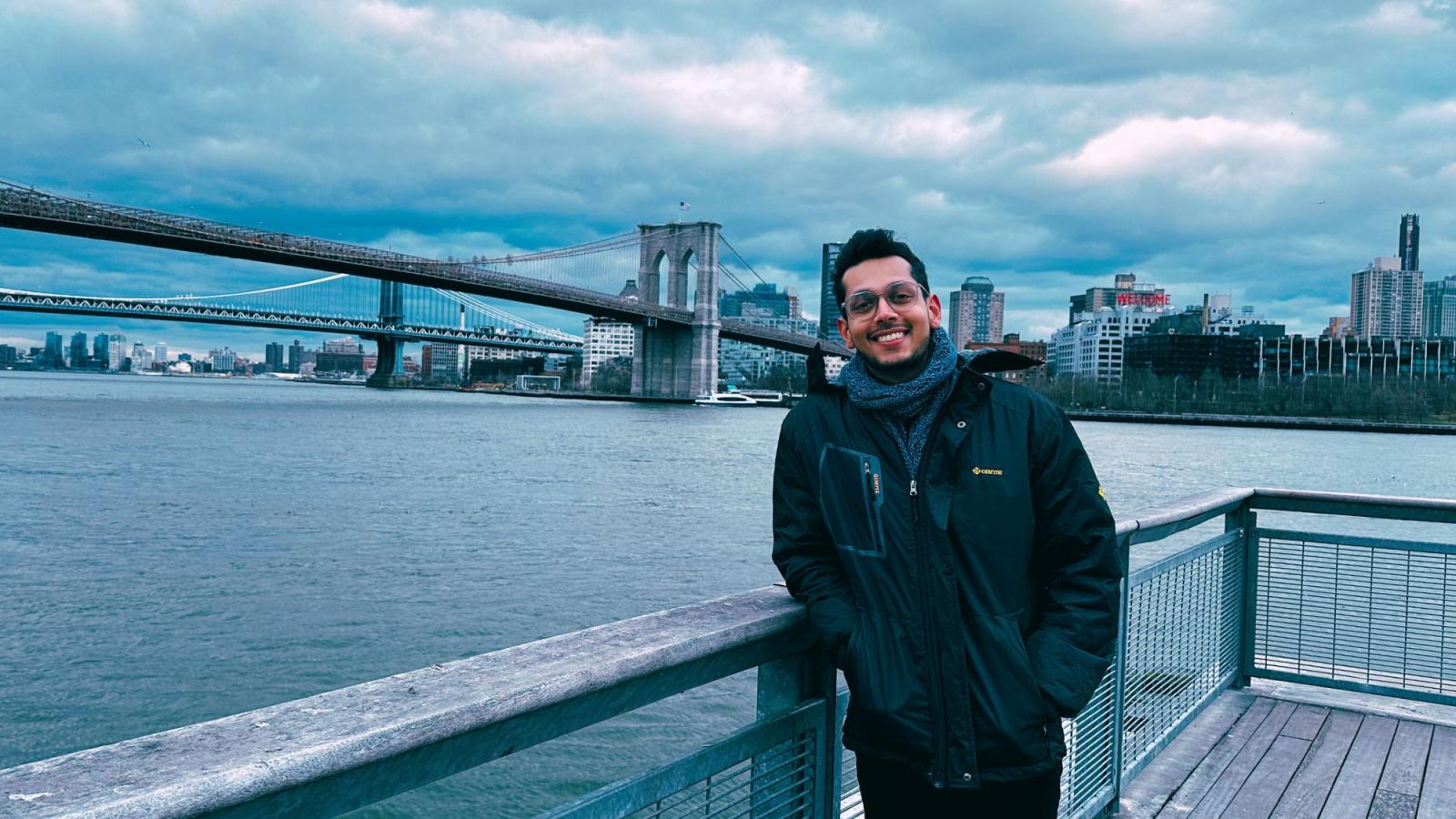
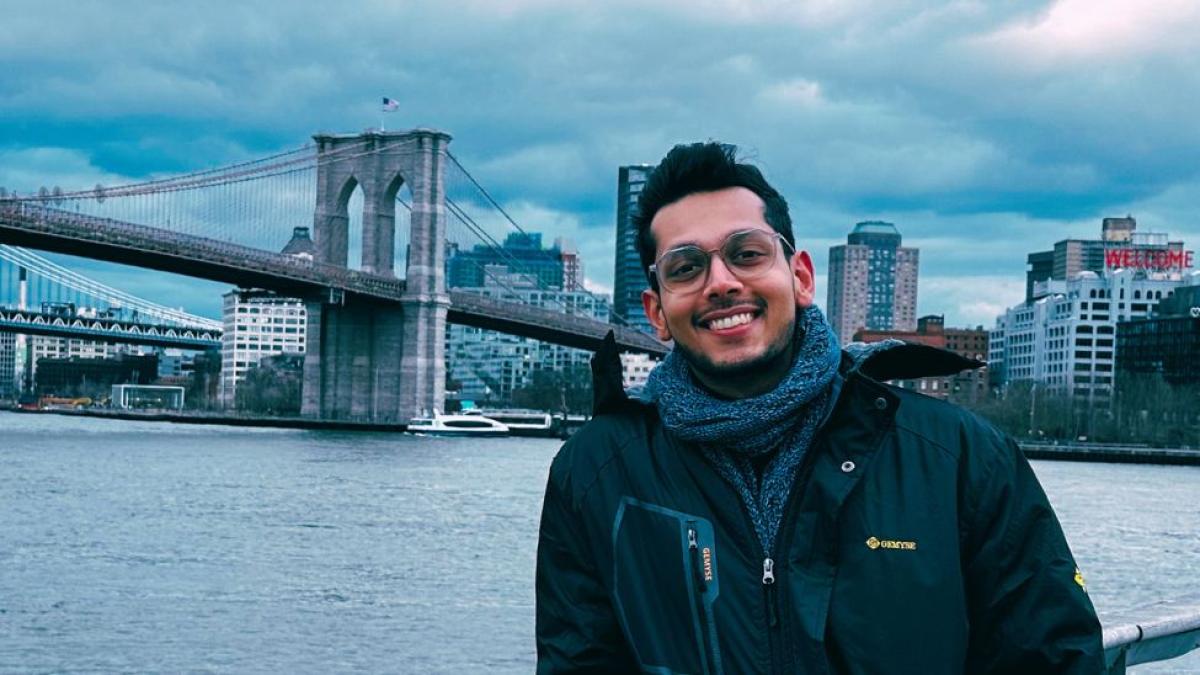
Nishant Doshi moved from India to New York to make the most of the opportunities Pace has to offer—and he’s succeeding.
We caught up with Nishant for a few questions to learn all about his adventures in UX research, the many projects he’s part of, and his advice for students considering human-centered design.
What brought you to Pace University?
During my undergraduate studies in computer engineering in India, I discovered a passion for graphic design while volunteering at a professional society. This experience sparked my interest in the intersection of technology and design, leading me to explore career opportunities in this domain. My journey led me to Pace University's MS in Human-Centered Design (HCD) program, where the curriculum aligned perfectly with my vision. Plus, the opportunity to study at the NYC downtown campus was impossible to resist! The location is very scenic, as stepping out you see the World Trade Center, which is a remarkable sight at night. My favorite spot in the city, pier 17, is also just a 10-minute walk away, which has a view of the Brooklyn Bridge that never gets boring!
What are some noteworthy projects you've worked on at Pace?
My academic journey at Pace University has afforded me the privilege of collaborating on a diverse range of projects with exceptionally talented peers and experienced faculty. One standout project was the "Access to Justice" project during the Research Methods for UX class, led by Professor Andreea Cotoranu. This multidisciplinary project spanned four months and involved regular collaborations with students from the Elisabeth Haub School of Law. It was both challenging and fulfilling, introducing me to teamwork across diverse backgrounds. Additionally, I had the opportunity to conduct remote user interviews to evaluate the usability of the Uber Eats app in a Human Factors & Usability Evaluation class under Professor Tony Wang.
The next project I'm embarking on is undoubtedly one of the most intriguing, thrilling, and intense endeavors of my academic journey. Under the NYC Design Factory, a select group of my peers and I have been chosen to participate in . . . a two week trip to Geneva, Switzerland, where we will work at CERN Ideasquare . . .
What have been your favorite classes so far, and what were they about?
One of my favorite classes to date has been Information Architecture, taught by Professor Lis Hubert. This course introduced me to the critical concept of structuring websites and applications with a focus on Users, Content, and Context. Our semester-long project involved evaluating the information architecture of Manduka.com, an e-commerce website specializing in yoga apparel and accessories. We conducted card sorts and tree tests to assess the website's effectiveness. The course was so enriching that many of us wished it were a core requirement rather than an elective.
Could you tell us about your role at the NYC Design Factory?
I'm incredibly fortunate to have been offered the role by Professor Cotoranu. As a Student Assistant, my responsibilities include planning and organizing design thinking workshops and activities, introducing the design thinking process to individuals new to the concept. I have the privilege of working in the newly constructed Seidenberg Design Factory Lounge, my favorite spot on campus (9th floor at 15 Beekman—ed). I'm also responsible for promoting the activities and events organized by the NYC Design Factory on social media. I'm excited about this opportunity and the chance to make a meaningful contribution.
What are your career aspirations upon graduating?
Upon graduating, I aspire to pursue a career as a UX researcher, which aligns with my ideal career path. I'm eager to work with outstanding companies and apply my knowledge to impactful, real-world projects. My strong interest in social work, which is rooted in the values of empathy, plays a significant role in my journey. These values were instilled in me from a young age, thanks to my family, and have greatly contributed to my development. It's worth noting that this strong foundation in empathy led to me being elected as the president of an international youth organization. I hope to contribute meaningfully to society in any way possible.
Tell us about the opportunities you've had at Pace
Pace University has consistently given me and my classmates many opportunities since the program started. One remarkable experience was my participation in a four-day design thinking virtual hackathon organized by Shenkar University of Art, Design, and Engineering in Israel through the NYC Design Factory. Working with people from diverse cultures and professional backgrounds, we ideated a solution for Monday.com, our client for the hackathon. This was the first project that allowed me to apply my academic knowledge to a non-academic context, resulting in an innovative extension to Monday.com's dashboard that utilizes AI, satellite imagery, and social media to aid first responders during disaster rescue missions by sourcing information from X (formerly Twitter) data. I've also had the privilege of interning at a tech startup in Chicago during summer of 2023, where I could apply my UX research and design skills to a real product. One memorable moment was when the CEO mentioned that students from the HCD program at Pace University that he had interviewed for the role stood out due to the experience and skills they portrayed. This is a testament to the quality of education at Pace University!

What's next for you?
The next project I'm embarking on is undoubtedly one of the most intriguing, thrilling, and intense endeavors of my academic journey. Under the NYC Design Factory, a select group of my peers and I have been chosen to participate in the Challenge-Based Innovation A3 project. This project involves a two-week trip to Geneva, Switzerland, where we will work at CERN Ideasquare, located within the CERN campus. This intensive two weeks marks the beginning of a seven-month-long project under the Product Development course, led by Professors Andreea Cotoranu and Luke Cantarella. Our objective is to leverage CERN and Attract's big data and deep technology to design solutions in alignment with the United Nations Sustainable Development Goal 12: Responsible Consumption and Production. I am incredibly excited about this opportunity and look forward to sharing more as the project unfolds. Track the journey of Team Oculus, of which I am a part, as we ideate solutions for the years 2030, 2035, and beyond.
Any advice for other students?
My advice for fellow students considering this program is to always remain open to conversations, as they are the breeding ground for fresh ideas. Do not shy away from asking questions; curiosity is a cornerstone of design thinking as it fosters creativity and ideation. Finally, practice empathy. Seek help when you need it and offer your assistance to others in their times of need. This approach has allowed me to establish meaningful connections and cultivate a network of talented friends.
Anything else you'd like to add?
When I am not busy with work, you could find me reading UX articles (Yes, I do that for fun!) or strumming to classic rock ballads from the 80s on my guitar! I am also a big football (Soccer) fan, and I never miss an FC Barcelona match! If you'd like to follow my UX journey, please visit my portfolio.
Meet Stephanie Akunvabey, EdD, Chief Diversity Officer, Associate VP of Diversity, Equity, and Inclusion
Meet Stephanie Akunvabey, Ed.D., Chief Diversity Officer and Associate VP of Diversity, Equity, and Inclusion at Pace University. Discover her vision and initiatives!
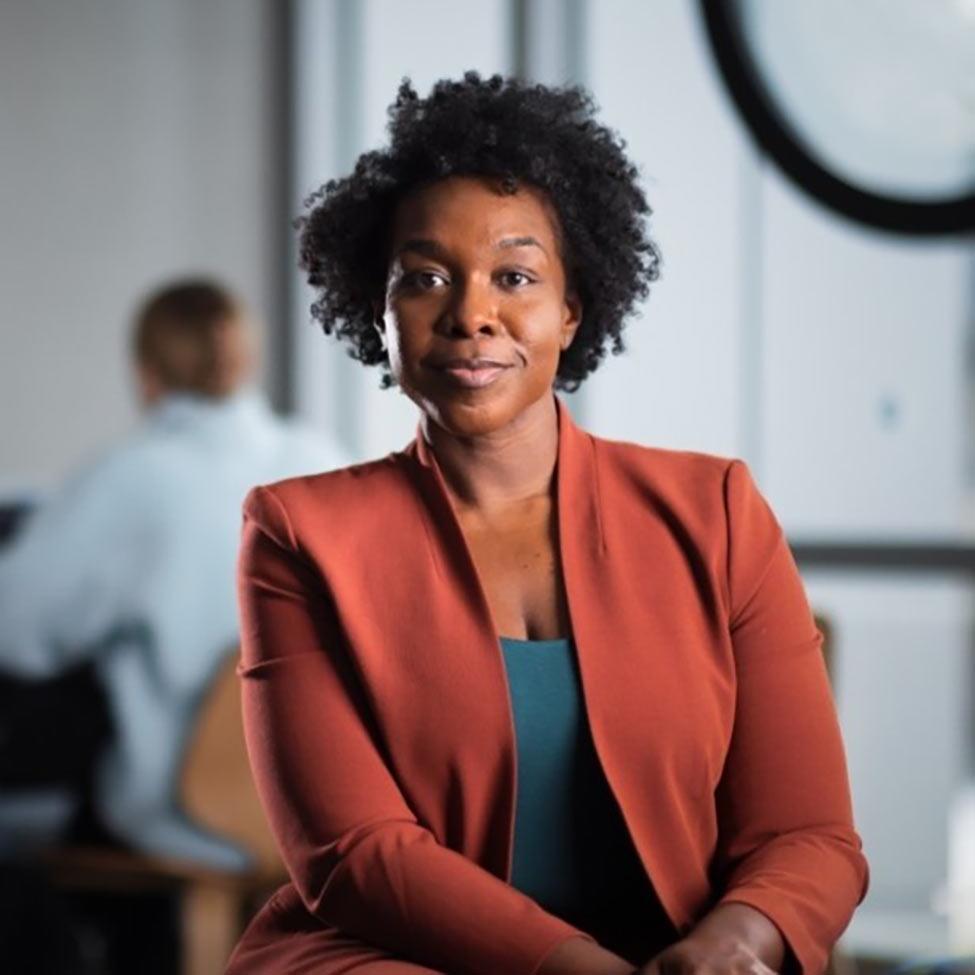
What attracted you to Pace?
Location. Location. Location. I was thrilled to return to the New York area, and to join an institution with such a clear mission - “Opportunitas". The NYC, Pleasantville and White Plains campuses offer a wide variety of possibilities for students to pursue their passions. After meeting with Pace faculty and staff, it was clear that Pace would be a great place to leverage my talents and learn from great colleagues.
What impact do you hope to make on the Pace community?
As CDO one of my primary goals is to help Pace fulfill its strategic priority of becoming an Anti-racist institution. It isn’t something I can do on my own, but I believe I can help build the infrastructure that makes it possible. There are amazing faculty, staff and passionate students who have already committed to advancing key social justice initiatives at our institution. I look forward to partnering with long-standing equity champions and inviting others to join the effort.
Is there a book that has had a meaningful influence on you, personally and/or professionally?
I love books. In terms of personal influence, it’s impossible to choose just one. Professionally I've drawn lots of inspiration from Immunity to Change: How to Overcome It and Unlock the Potential in Yourself and Your Organization by Lisa Laskow Lahey and Robert Kegan.
Do you have a favorite quote that you would like to share?
"Think Big. If that doesn't work, think bigger."
What do you enjoy doing in your free time to relax?
Music is my happy place. I love an impromptu kitchen dance party with my family. I also enjoy going for long walks while listening to audio books or some of my favorite tunes.
What would be your ultimate getaway vacation destination?
Anywhere with good vibes, sun, fresh fruit, and the sounds of the ocean.
Do you prefer sweet or savory for your snacks?
I've always had a sweet tooth. But lately, I've really come to appreciate a blend between sweet and savory. Chocolate covered pretzel is the way to go.
If there is anything else you would like to share with the Pace Community?
The DEI division will be offering lots of opportunities to learn and engage. One example is our upcoming Safe Zone: LGBTQ+ Allyship Training on Friday, November 3rd at 11am. Register for the Zoom training. I hope to see you there!
Description of workshop: This virtual workshop will explore concepts such as sexuality, gender identity, and assigned sex at birth while providing guidance for creating safe(r) spaces on a university’s campus through an intersectional and anti-racist lens. This workshop welcomes folks with little to no background knowledge of LGBTQIA+ identities and topics while aiming to challenge those who are confident with their prior knowledge with new ideas and perspectives. Participants will also have the opportunity to participate in a follow-up (level 2) session that will take place later this fall.
Compare Personal Loan Rates
Lubin Professor Larry Chiagouris speaks with WalletHub about comparing personal loan rates.

Enabling Greater Success for Autistic Students
Seidenberg professor James Lawler was awarded Best Conference Paper and Best Paper of the Innovative Education, Pedagogy and Teaching Track for "A Case Study for Enabling Autistic Students to Enter Best-of-Class Career Programs in Science, Technology, Engineering and Mathematics (STEM)", at the 59th Annual Meeting of the Institute for Operations Research and Management Science.
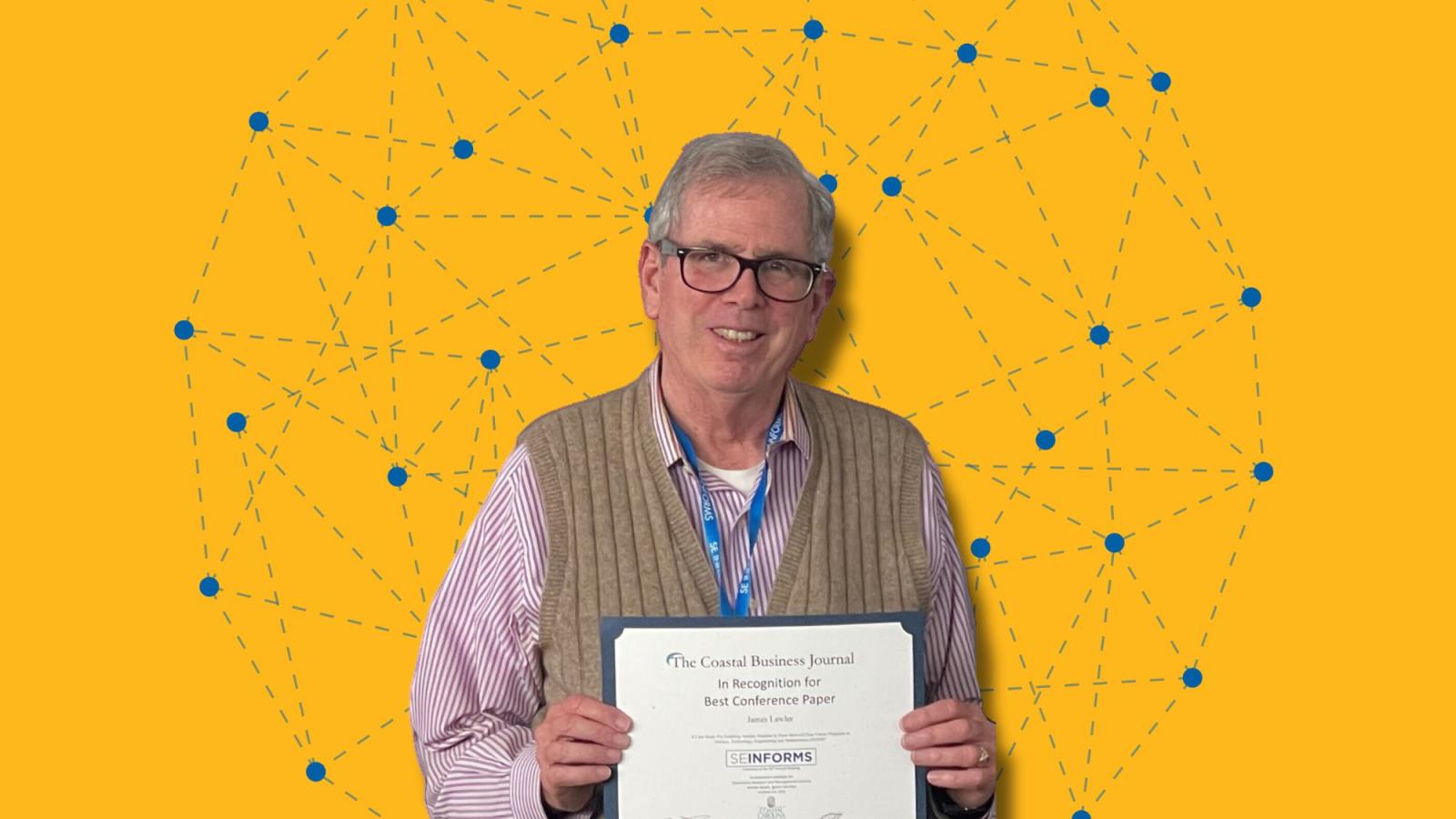
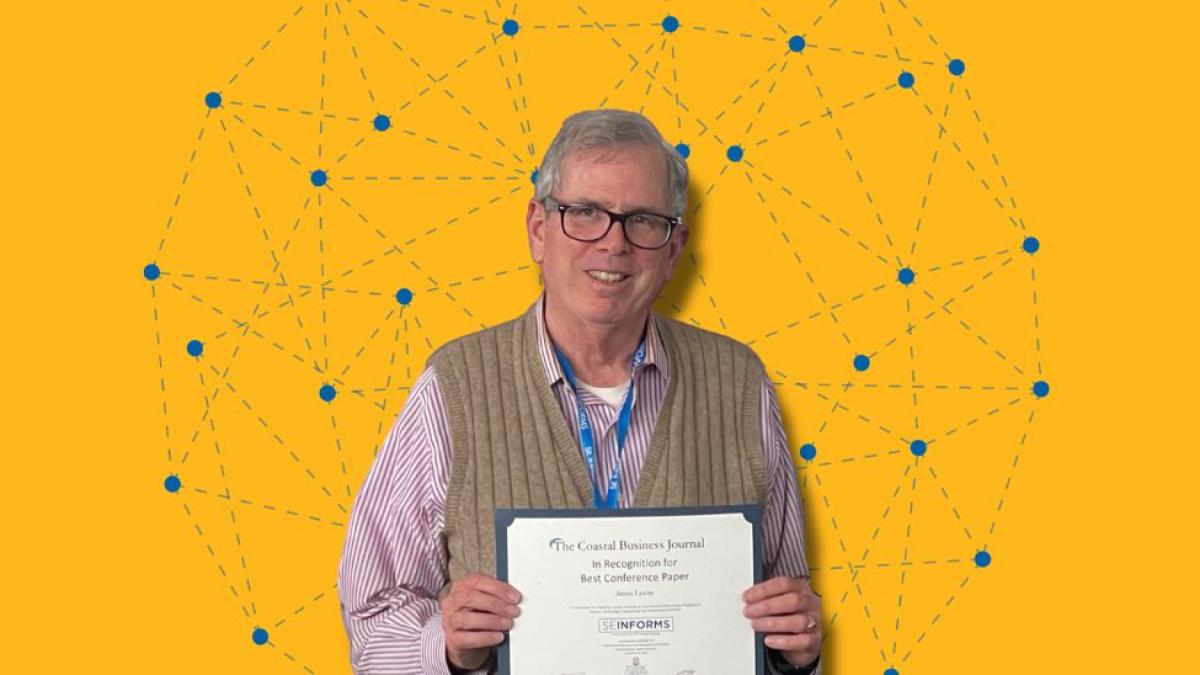
Seidenberg professor James Lawler was awarded Best Conference Paper and Best Paper of the Innovative Education, Pedagogy and Teaching Track for "A Case Study for Enabling Autistic Students to Enter Best-of-Class Career Programs in Science, Technology, Engineering and Mathematics (STEM)", at the 59th Annual Meeting of the Institute for Operations Research and Management Science (INFORMS), in Myrtle Beach, South Carolina, on October 4-6.
The research entailed exploring how, despite a higher rate of inclusion of autistic students in post-secondary schools, the programs into which they are entering may not be enabling the students effectively. While the programs may be academically appropriate, only 34% of students with disabilities enter these programs, and of those, only 39% graduate. The statistics continue to decline further along the students' path—with only 15% of graduating students estimated to be employed in the five years following graduation.
Dr. Lawler proposed that autistic students can be better enabled for success and designed a model to support solutions beyond typical services.
The model includes focus on five constructs: accommodation for curricular in STEM, curricular focus in STEM, extra-curricular growth, health and mentoring services, and opportunities and recognitions. Each area includes a wealth of programmatic and support recommendations to improve the experience for students with autism in STEM programs.
Dr. Lawler has a longstanding history of research and project-based activity related to people with disabilities. He has created several programs and projects at Pace that focus on building better experiences for students. "Most of the Pace students engaging in the programs and projects are students without disabilities learning about those disadvantaged and with disabilities for the first time," he said.
"Programs are also engaging Pace undergraduate students in participating on projects with me with the Mayor's Office for People with Disabilities (MOPD) of the City of New York, such as the Disability Film Festivals that we do at the university. We are fortunate moreover to be partnering with OASIS at Pace University and with Tech Kids Unlimited as we pursue new programs and projects in the fields of diversity and technology at the university."
The conference paper was also awarded competitively for funding by the Helene and Grant Wilson Center for Social Entrepreneurship of the university in 2022.
Additionally, the 10th Anniversary Celebration of People with Disabilities in Films Disability Film Festival at Pace University will be Wednesday, April 10, 2024.
Professor Sam Kalen Examines the Future of the Administrative State During Gilbert and Sarah Kerlin Lecture on Environmental Law at Elisabeth Haub School of Law
On Tuesday, October 3, 2023, Sam Kalen delivered the annual Gilbert and Sarah Kerlin Lecture on Environmental Law. Professor Kalen is the William T. Schwartz Distinguished Professor of Law and Associate Dean at the University of Wyoming College of Law, as well as the founder and co-director of the School’s Center for Law and Energy Resources in the Rockies. Also, he is currently the Visiting McKinney Family Chair in Environmental Law at IU McKinney School of Law. The topic of his lecture was “The Supreme Court’s Approach Toward the Administrative State and Implications for Environmental Programs.”

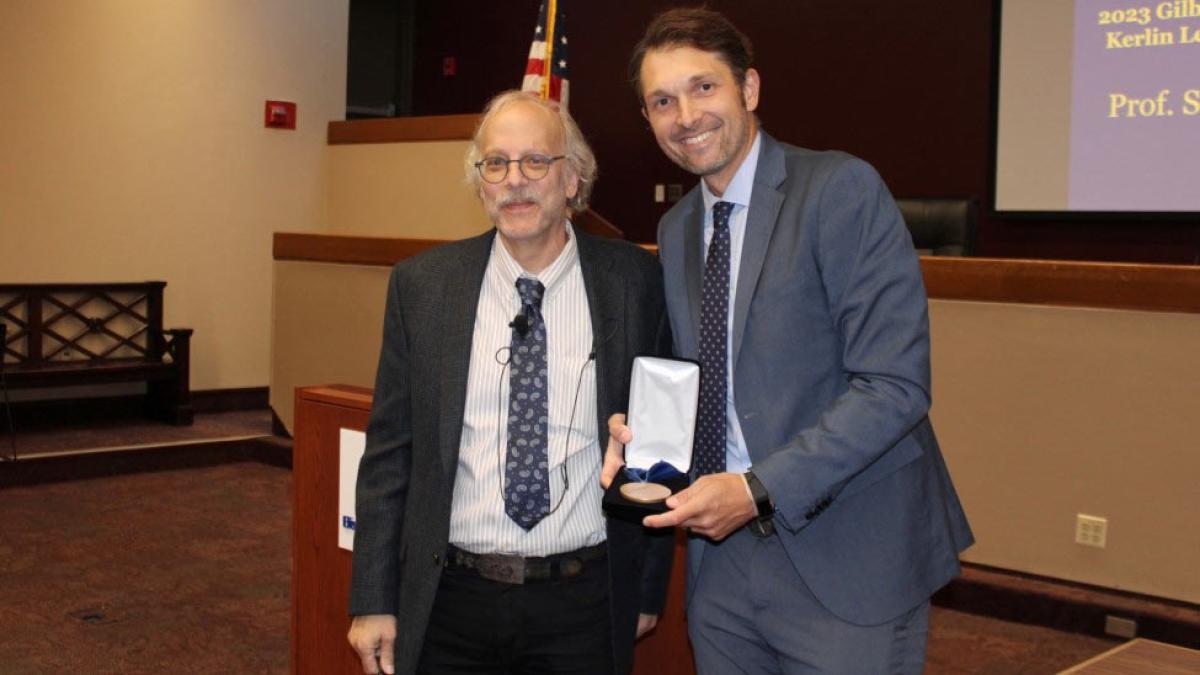
On Tuesday, October 3, 2023, Sam Kalen delivered the annual Gilbert and Sarah Kerlin Lecture on Environmental Law. Professor Kalen is the William T. Schwartz Distinguished Professor of Law and Associate Dean at the University of Wyoming College of Law, as well as the founder and co-director of the School’s Center for Law and Energy Resources in the Rockies. Also, he is currently the Visiting McKinney Family Chair in Environmental Law at IU McKinney School of Law. The topic of his lecture was “The Supreme Court’s Approach Toward the Administrative State and Implications for Environmental Programs.”
Prior to the commencement of the lecture, Jason Czarnezki, Gilbert and Sarah Kerlin Distinguished Professor of Environmental Law and Associate Dean of Environmental Law Programs and Strategic Initiatives thanked all who helped to make this year’s Kerlin lecture happen and introduced the Dean of the Elisabeth Haub School of Law at Pace University, Horace E. Anderson Jr. Dean Anderson spoke of the importance of the Kerlin lecture and the innovative and premiere environmental legal education that Haub Law provides, which includes hosting speakers like Professor Sam Kalen. Dean Anderson noted, “We are consistently honored to host top scholars, dignitaries, attorneys, experts, and leaders in public service, such as Professor Kalen, to speak to our community about current environmental challenges and importantly, solutions to those challenges. This knowledge is fundamental to our understanding of how we apply the rule of law to impact not just us as individual humans, but also our planet.” Professor Jason Czarnezki formally introduced Professor Sam Kalen, in presenting the 2023 Gilbert and Sarah Kerlin Lecture Award, highlighted Professor Kalen’s impressive background and career, including serving in the Solicitor’s Office at the Department of the Interior during the Clinton administration.
Professor Kalen started his lecture by noting that it was fitting to have a lecture about the Supreme Court as the Court’s term just started. In particular, a discussion about how the judiciary is deciding cases, and how those decisions may implicate environmental cases and laws moving forward was warranted given that there are at least three cases set to go before the Supreme Court this year that seek to curb the power of federal agencies.
Throughout the lecture, Professor Kalen shared his concern for the future of the environmental administrative state. “Some of what I may say can be considered depressing for those that cherish our environmental programs,” said Professor Kalen. A focus of Professor Kalen’s lecture was detailing specific environmental law cases, both historical, and more recent, and how the Court at the time approached the administrative state and looking towards the present cases before the Court and future.
Professor Kalen went on to note that the recent case, Sackett v. EPA, is one of the most momentous decisions issued by the Supreme Court narrowing the scope of the Clean Water Act. In this case, the Court considered whether the 9th circuit applied the appropriate test to determine whether Sackett’s property contained wetlands that are “adjacent wetlands” as regulated by the Clean Water Act. While the case deals with the Clean Water Act, he notes, it reduces related environmental rights and the scope of agencies. “Sackett also does something else,” he notes. “It illustrates the Court’s approach towards the administrative state and suggests a greater involvement by the judiciary shifting more power to the courts when interpreting statutes and for our purposes, environmental statutory law.”
“Environmental programs function as a consequence of how the modern administrative state operates,” he said. “Agencies need flexibility to address new and emerging environmental threats and concerns.” Of primary concern, Professor Kalen notes, is that through cases like Sackett, the Supreme Court has employed methods to chip away at the modern administrative state. Professor Kalen’s lecture detailed that recent cases brought before the courts involve three things regarding administrative agencies (1) agency structure; (2) agency authority and flexibility; and (3) the malleability of modern statutory construction.
Professor Kalen concluded his lively lecture, by nothing that what a case like Sackett has done is “basically give the power over to the judiciary to interpret language and not give deference to agencies and, the minute it does that, it hinders agencies ability to move forward in a progressive way.”
After the lecture, audience members had an opportunity to comment and ask questions. The impactful, provocative, and honest discussion continued. In response to an audience question regarding what we can do to move forward in a positive manner, Professor Kalen honestly answered that he does believe we are in trouble. “I think right now the courts are outcome driven. Regardless of how the language is drafted, what we are seeing is judicial opinions doing very strange things from a statutory construction perspective. I wish I could say otherwise or that these are principled decisions, but I think it is difficult for some of us to say that they are in fact principled decisions.” Following the lecture, a networking reception was held where the Elisabeth Haub School of Law at Pace University community had the opportunity to the continue the conversation with Professor Kalen and one another.
The Elisabeth Haub School of Law established the Gilbert and Sarah Kerlin Lecture on Environmental Law to expand its programs of research, education, professional and scholarly activity and publications in environmental law, a field for which the law school has received national and international recognition. The Kerlin endowment funds a named professorship on Environmental Law at Haub Law. Professor Nicholas A. Robinson, founder of the Haub School's environmental programs, was named the first Gilbert and Sarah Kerlin Distinguished Professor in 1999 and Professor Jason J. Czarnezki was designated as the second Kerlin Distinguished Professor in 2013. The last Kerlin lecture was given by U.S. Environmental Protection Agency General Counsel Jeffrey Prieto.
Polarization
Dyson Professor Seong Jae Min writes an op-ed in The Korea Times about polarization in Korea.
I came back to Korea after a long time abroad, and one of the most visible issues that I notice in Korean society today is that of polarization. Polarization generally refers to the splitting of society into conflicting groups such as rich and poor, old and young, and urban and rural, which this rapidly growing and competitive country has experienced quite a good deal over the years. But what makes today’s polarization particularly challenging is its scope and nature. The type of divisiveness Koreans are experiencing now is what some scholars call “affective polarization,” where in-group members exhibit animosity toward out-group members. And it seems to be widespread across Korean society.
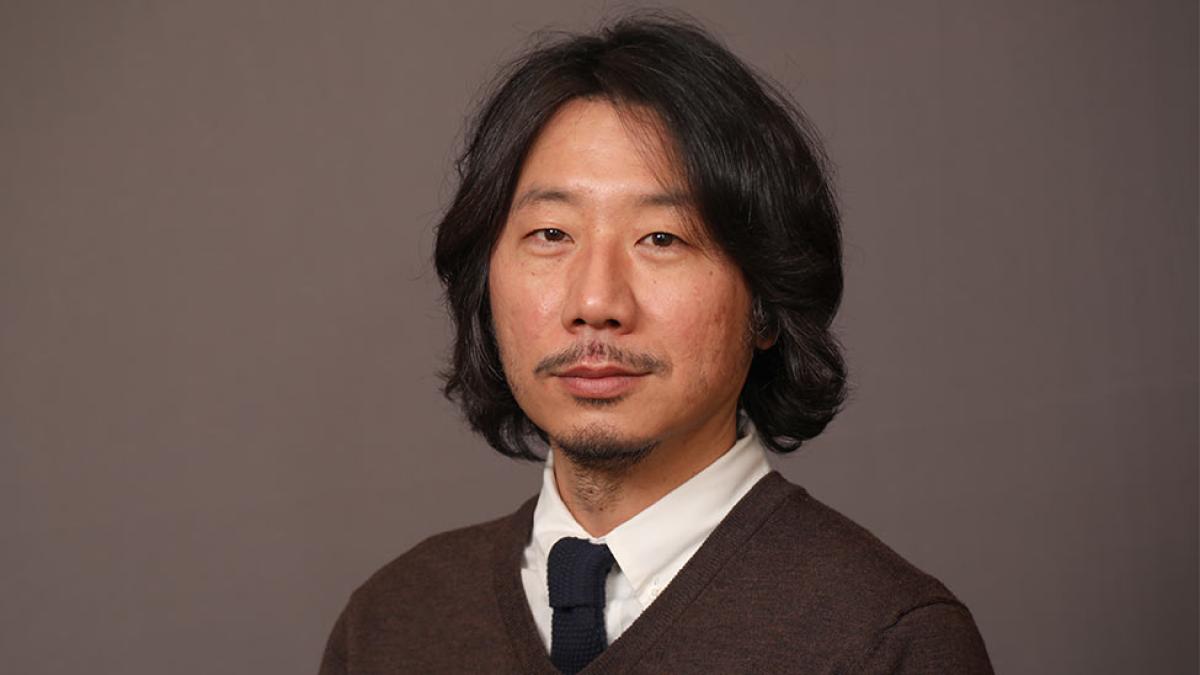
Legal Expert Warns Trump Lawyers Could Face “Disbarment” and “Possibly Be Jailed” Over Court Stunts
Elisabeth Haub School of Law Professor Bennett Gershman speaks with Salon about how former Trump lawyers could face “disbarment” and “possibly be jailed” over court stunts.
“Trump’s lawyers are perilously close to being sanctioned once again and more heavily by Judge Engoron for their misconduct,” Bennett Gershman, a former New York prosecutor and law professor at Pace University, told Salon. “They are behaving in manifest bad faith by intentionally delaying and obstructing the proceedings and deliberately creating a spectacle to promote Trump's fundraising. Lawyers in any legal proceeding foresee an appeal if they lose and try to make a complete and proper record for appellate review.”
It’s Been 13 Years Since Danroy Henry’s Death: It’s Time To Pass DJ’s Law
Vinnie Birkenmeyer, director of Residential Life at Pace University in Pleasantville and an adjunct professor of Political Science with Dyson College, pens an op-ed in The Journal News calling on state and county lawmakers to propose legislation — DJ’s Law — in memory of Danroy "DJ" Henry Jr., a Pace student-athlete who was shot and killed by a police officer 13 years ago. This law will require specific training for law enforcement about best practices in different moving vehicle situations.
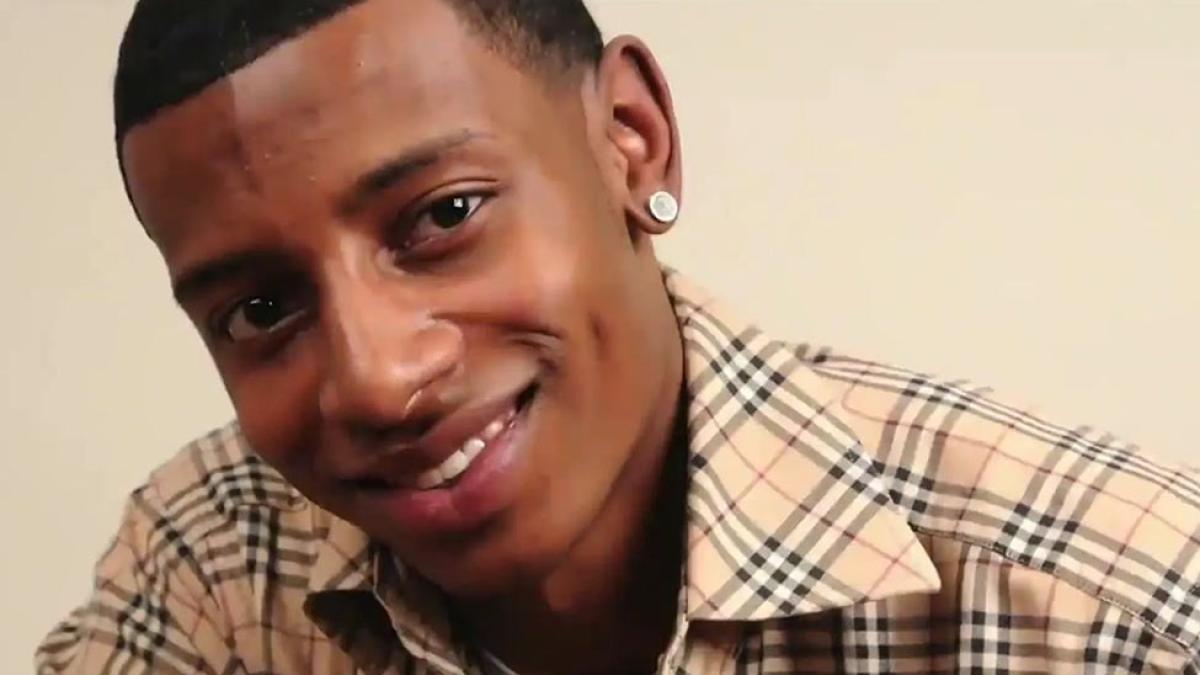
Pace University’s Dean Tresmaine R. Grimes, PhD, National Nominee for the Jefferson Award
Tresmaine R. Grimes, Ph.D., dean of the Dyson College of Arts and Sciences and the School of Education, and interim dean for the Sands College of Performing Arts at Pace University, was nominated for the Jefferson Award for Outstanding Public Service by an Employee.
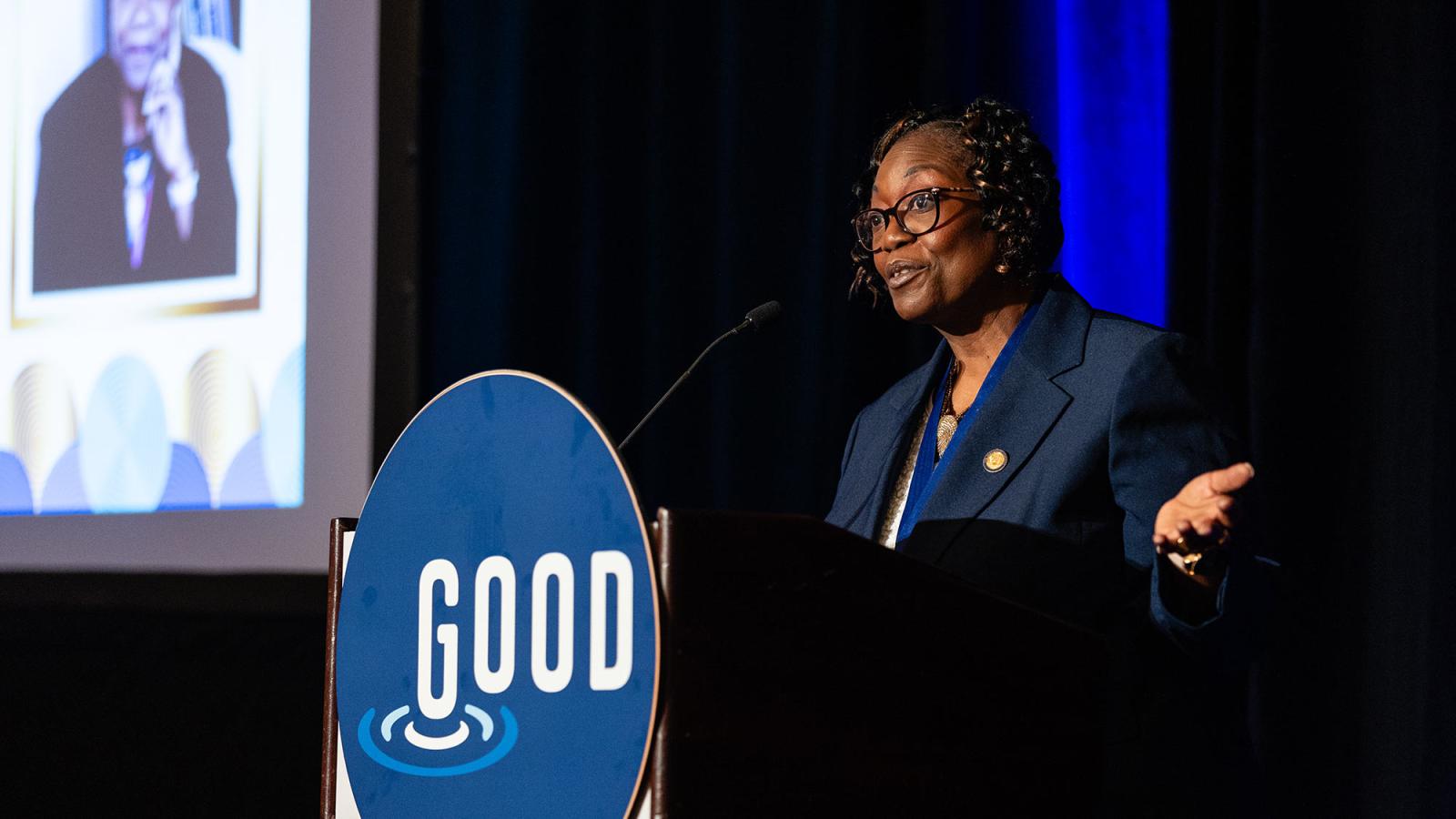
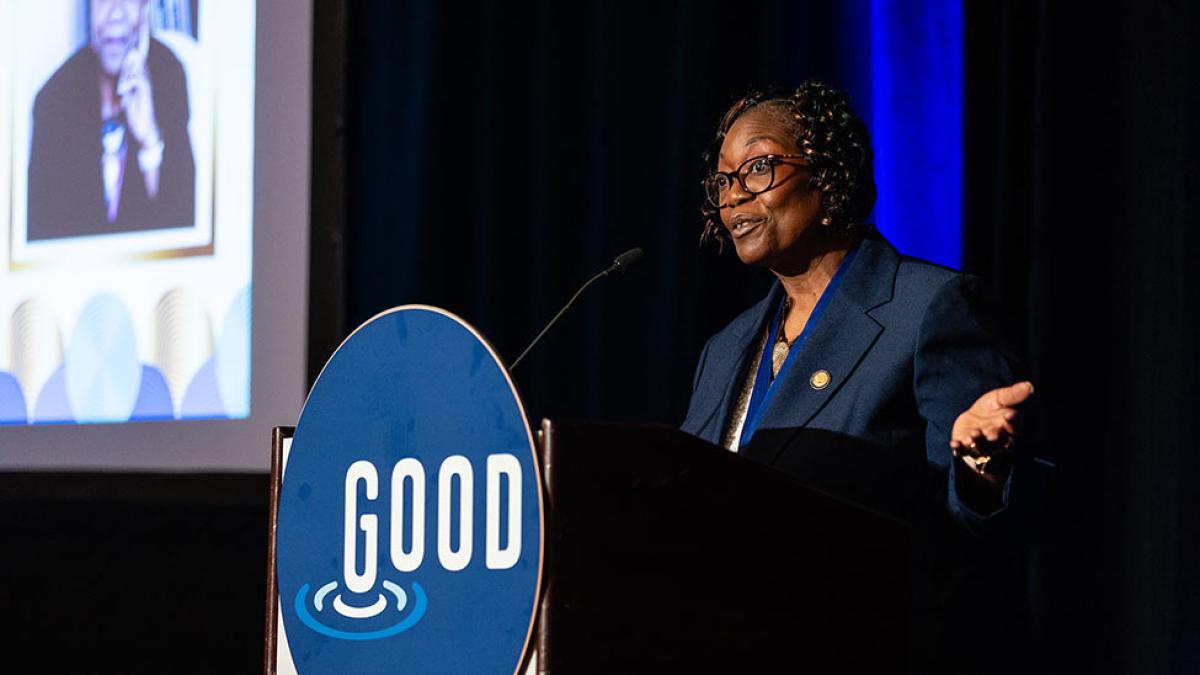
Award Recognizes Outstanding Public Service by an Employee
Tresmaine R. Grimes, Ph.D., dean of the Dyson College of Arts and Sciences and the School of Education, and interim dean for the Sands College of Performing Arts at Pace University, was nominated for the Jefferson Award for Outstanding Public Service by an Employee.
Multiplying Good, the nonprofit organization that administers the Awards, announced the nominees at its National Celebration of Service earlier this month. Uniting over 200 service leaders from various media partners and corporate partners from across the country, the gathering was a testament to the organization's commitment to celebrating service, leadership, and excellence.
Nominated by Pace University, Dean Grimes was acknowledged for her work within her organization and community. Grimes has dedicated her career to improving the lives and mental health of others. In 2004, she had the opportunity to join a delegation of American mental health professionals who traveled to South Africa to study the impact on mental health of the South African population as it relates to apartheid-related trauma, sexual assault, and HIV/AlDS.
Dr. Grimes has been actively involved in service to her community for much of her life. In 2012, she established her own nonprofit organization, Sarah's Daughters Ministries, which focuses on supporting local organizations that assist women who are recovering from relationship violence and providing ministry to women and men to help them grow spiritually and find the best path forward.
“It's a tremendous honor to be nominated for the Jefferson Award for Outstanding Public Service by an Employee,” said Dean Grimes. “Throughout much of my life, I've embraced the notion that it's important to serve others and give back to others. I am extremely honored that someone would consider the actions I take worthy of acknowledgment.”
Dean Grimes received a Bachelor of Arts from Yale University with a double-major in Afro-American Studies and Psychology, a Master of Arts in Psychology from the New School for Social Research, and a M.Phil. and Ph.D. in Developmental Psychology from Teachers College, Columbia University.
Her teaching career began at South Carolina State University as a member of the Psychology and Sociology Department there. During her nine-year tenure at S.C. State, Grimes received promotion to the level of associate professor and served as chair of her department for four years.
She arrived at Iona College in 2000 as an adjunct professor of psychology and moved through the ranks again to become a tenured associate professor of Psychology. She was promoted to the position of assistant vice president for academic affairs at Iona College in 2007 and served in the position for 8 years. Dr. Grimes served as vice president for academic affairs and dean of faculty at Bloomfield College in Bloomfield, New Jersey from September 2015 until August 2019.
Dean Grimes has used her professional skills to assist many organizations, including the American Psychological Association, the Educational Testing Service, and the College Board. She has received many awards, including Teacher of the Year from the South Carolina Psychological Association and the Standing on Their Shoulders Award from the Bronx Alumnae Chapter of Delta Sigma Theta Sorority, Inc.
Over the past five decades, the list of Jefferson Award recipients has included hundreds of national figures — both public and private —more than 65,000 unsung heroes, and tens of thousands of employees and young people that represent the good that is happening in communities across the country. The list of winners includes an impressive who’s who of cultural icons, political dignitaries and everyday community members and volunteers.
"For over half a century, the Jefferson Awards has been dedicated to changing the narrative by highlighting the incredible acts of goodness happening all around us,” said Benita Fitzgerald Mosley, CEO of Multiplying Good. “When we shine a spotlight on these acts of service on such a grand stage, their impact resonates throughout the nation, inspiring millions and prompting action."
"Jefferson Award recipients exemplify the pinnacle of selfless service," Mosley continued. ''Through sharing their narratives, we not only motivate them to continue their remarkable work but also ignite inspiration in others to create positive change."
In her remarks, Dean Grimes congratulated her peers and spoke about establishing a nonprofit that helps the faith community understand and get to the truth of domestic violence.
“Sarah’s Daughters Ministries is focused on helping women understand that love shouldn’t hurt,” Dean Grimes said. “If you find yourself or find a friend or someone you love in a relationship that's violent take a breath, control your rage, and figure out how you can help them.”
“I applaud Dean Tresmaine Grimes for this extraordinary honor,” said Joseph R. Franco, PhD, Pace University Provost, who attended the National Celebration Service event. “Her dedication to community and public service inspires our fellow colleagues in the Pace Community. She is truly deserving of this great honor.”
About Multiplying Good
Multiplying Good is a national nonprofit that believes in the power of service to others to unleash potential, inspire individuals, and transform lives. Multiplying Good fuels personal growth and leadership development through a continuum that starts with engagement and culminates in recognition. It has offices in 11 communities across the country, delivering on-the-ground impact where it is needed most. Founded in 1972 by Sam Beard, Jacqueline Kennedy Onassis, and Senator Robert Taft, Jr., the organization has recognized the extraordinary public service of thousands with its Jefferson Award. To learn more, visit MultiplyingGood.org or follow Multiplying Good on Facebook.
About Pace University
Since 1906, Pace University has been transforming the lives of its diverse students—academically, professionally, and socioeconomically. With campuses in New York City and Westchester County, Pace offers bachelor, master, and doctoral degree programs to 13,600 students in its College of Health Professions, Dyson College of Arts and Sciences, Elisabeth Haub School of Law, Lubin School of Business, Sands College of Performing Arts, School of Education, and Seidenberg School of Computer Science and Information Systems.
Entrepreneurial Insights with Isaiah Jimenez '23
In this episode of The Lubin Link, Isaiah Jimenez '23 discusses his passion for entrepreneurship, why he believes business students should take art classes, and his advice for fellow aspiring entrepreneurs.
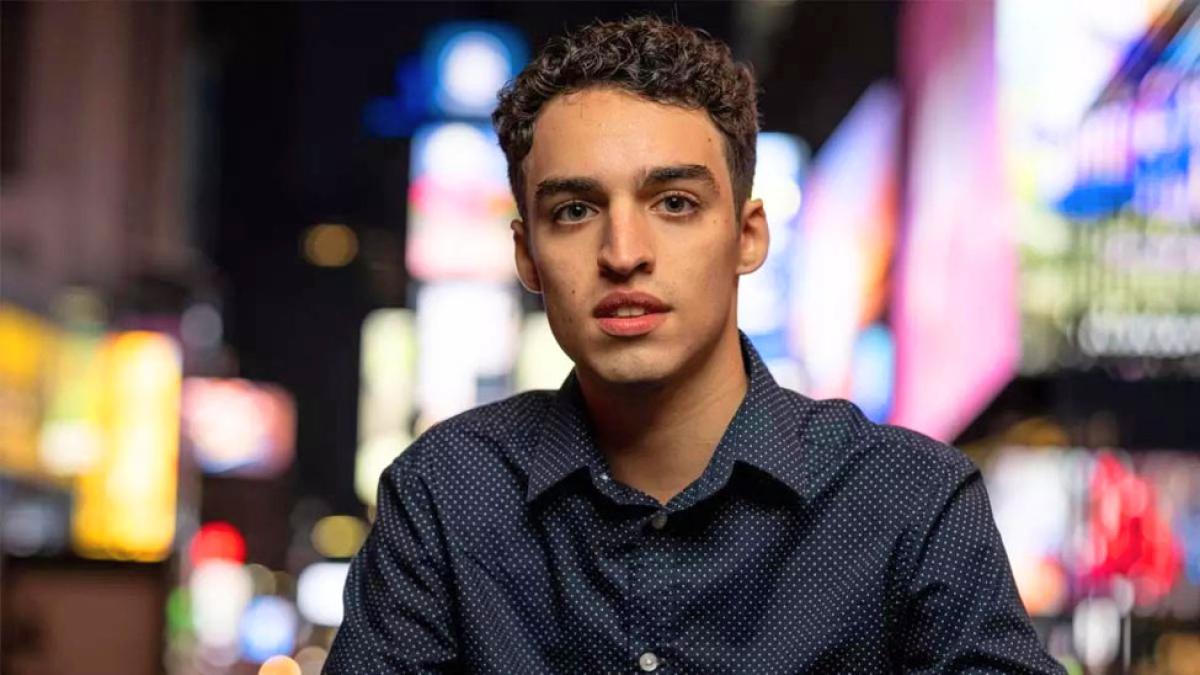
The Lubin Link Podcast
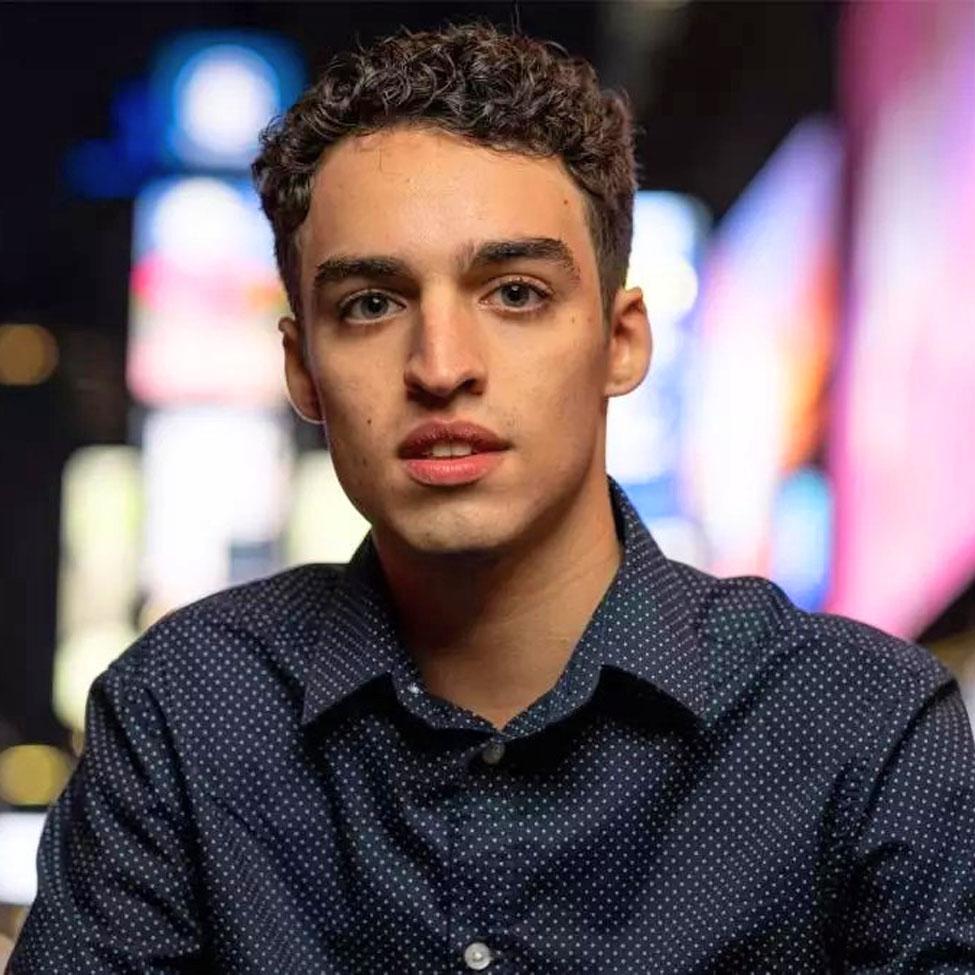
Isaiah Jimenez '23 embodies what it means to be an entrepreneur—and not just because he graduated from the Lubin School of Business with a BBA in Entrepreneurship. Before starting his career in real estate, Isaiah sold Pokémon cards as a kid, started his first business as a teenager, then continued to explore other entrepreneurial ventures throughout college. In this episode of The Lubin Link, Isaiah discusses his passion for entrepreneurship, why he believes business students should take art classes, and his advice for fellow aspiring entrepreneurs.
This episode was recorded on October 3, 2023.
Tune into the Lubin Link podcast to hear how guests went from go-getting Lubin students to successful entrepreneurs, social media mavens, directors, CEOs, and beyond. They offer their best tips to students and share how you can make the most out of your #LubinLife.